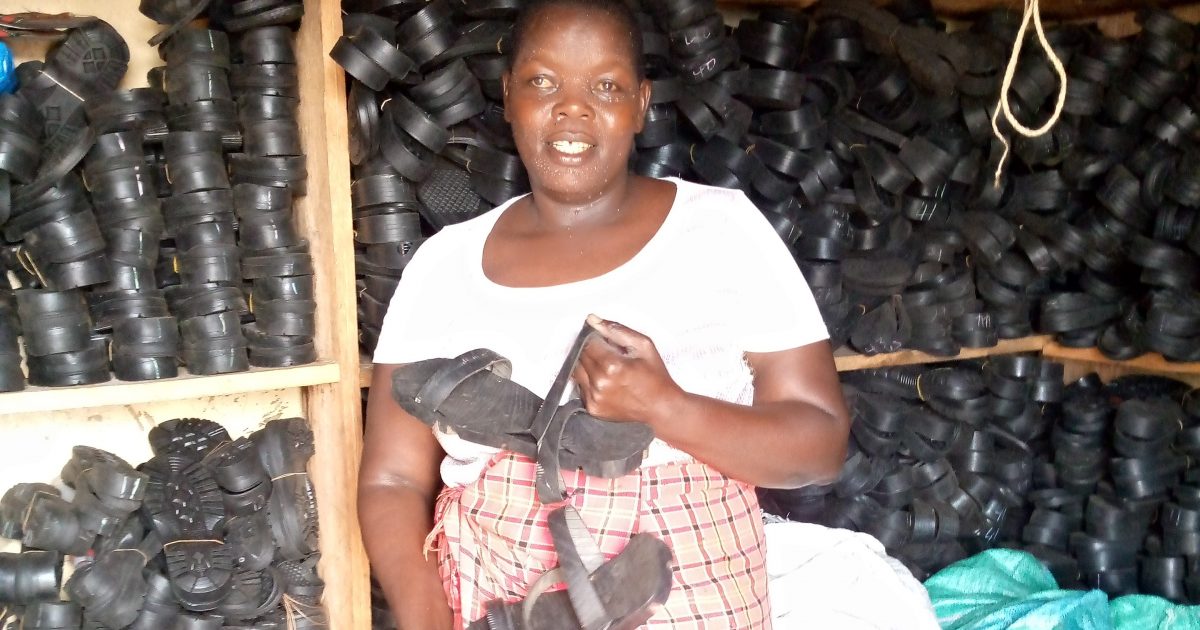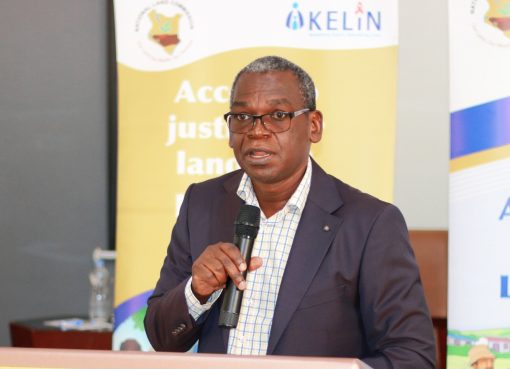In a remarkable effort to combine sustainability with craftsmanship, a woman in Kisumu city’s bustling Kibuye Market is branding herself for turning waste into wealth by creating durable and eco-friendly footwear from discarded tyres.
This unique venture not only addresses the issue of tire waste but also provides affordable shoes to local consumers.
Her craftsmanship exemplifies innovation in recycling, offering a sustainable alternative to conventional shoe manufacturing while supporting the local economy.
Jackline Atieno, said the idea struck her years ago as she observed her sister’s thriving craftsmanship business which was influenced by piles of waste tyres accumulating with little effort made to recycle them.
Seeing an opportunity, she said, she started experimenting with the tough, flexible material, eventually crafting shoes that are not only cost-effective but also long-lasting.
“I got influenced by the creative nature of my sister which over the years triggered my interest and effort for the foreseen source of income. I regularly sharpened my skills through learning by observation from the daily procession of the footwear. It is through this that I fully ventured into the business,” she said.
Since the inception of her tyre-based footwear business, she said, it has evolved from a small stall operation to a recognized brand within Kisumu County.
Over time, she added, she has refined her designs to cater for different tastes, creating various styles that appeal to a wide range of customers.
Sandals popularly known as Akala and slip-ons tend to be the most popular, particularly because of their rugged durability, making them suitable for everyday wear in the rough terrain of rural Kenya.
“Majority of rural-based residents prefer these types of footwear over the rest because of their durability and resistance to harsh weather in some parts of the region,” she said.
However, the path to success of the business has not been without challenges since sourcing used tyres that meet the right standards for thickness and flexibility takes time.
“I acquire raw materials from the Jua Kali industry but once in a while I get low quality materials that do not meet customers’ demand,” she said.
Despite these hurdles, she guarantees the durability of her footwear by handcrafting each pair and ensuring the material is meticulously prepared.
In a community where job opportunities are limited, the impact of her business extends beyond her personal success and she had become a beacon of hope for others.
“I fully depend on this business as a source of family income. It caters for my children’ school fees, monthly rents and upkeep. The cheapest product I make retails at Sh. 150 while the most expensive goes at Sh. 500 depending on the customer’s demand,” she said.
Income generated from the business, she added not only supports her family but also boosts the local economy.
Her commitment to environmental sustainability is reflected in the very core of her business model through recycling tires that would otherwise contribute to pollution.
By balancing the financial and environmental aspects of the business, she added, she remains conscious of his eco-footprint, making conscious decisions to limit waste during production.
The remnants, she said, are used to make other items like wired-toy cars, thereby helping to conserve the environment.
Despite the cutthroat competition in the footwear market, her shoes stand out due to their durability, unique materials, and the story behind them.
The innovation of using discarded tyres, she said, gives her products an edge, appealing to customers looking for something different and sustainable.
Looking ahead, she added, she envisions expanding her operations, possibly by introducing new products or venturing into real estate.
Her dream is to reach a broader market, taking her recycled tire footwear to cities beyond Kisumu.
Jackline advises aspiring entrepreneurs, particularly those looking to start a sustainable business to consider any business worthwhile and productive.
“Start small, stay committed, and focus on solving a problem. The world has a lot of waste. If we all play an active role, then we can turn that waste into something beautiful and useful,” she sums up.
By Ouma Zakayo





